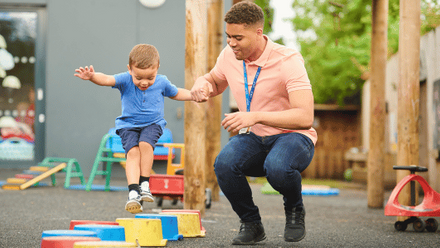What is mentoring?
‘Mentoring’ is a bit of a buzzword in education and employment, particularly when discussing development and progression. What is mentoring and how can it be used to maximise people potential, develop skills and improve performance? It's a professional relationship designed to build confidence and help the mentee to develop their self-learning.
Successful mentoring has been recognised as one of the most effective ways to transfer knowledge and to build skills and confidence in individuals. The mentoring process empowers people by providing them with the tools to learn for themselves giving them full control of their learning.
In this article we will explore:
- how we learn in the workplace
- the benefits of mentoring and how it contributes to personal and professional development of individuals.
Why is mentoring important?
Mentoring as a developmental practice is rapidly growing in popularity across all sectors. Many schools have introduced mentoring programmes that encourage older students to advise younger learners, whilst Higher Education courses use mentoring as a support tool for getting the most for the learning experience.
In early education and care, it brings an awareness of the need to reflect on our everyday interactions with children, families and colleagues, to think about what is working well and to consider what we can improve or do differently.
Even the smallest incident can provide a learning moment. For example, think of a time when you dealt with a parent's concern about their child's development, is there anything you would do differently next time?
During a busy day, it takes practice to remember to reflect and learn from our everyday working experiences but working with a mentor helps us to scaffold our reflections in a supportive environment and improve our practice for all.
Unlike other forms of professional development, mentoring takes a holistic whole-person approach to offer advice and guide the mentees, rather than instruct them and tell them what to do.
How we learn at work
As early education and care professionals we know that children learn best through play and by being actively involved in an activity. Children who are encouraged to think for themselves are more likely to become independent, confident and competent individuals. Focusing on developing children's strengths helps to encourage self-directed learning, confidence and wellbeing.
The same principles can be applied to adult learning in the workplace. We never stop learning but we learn best through direct, concrete experiences in which we can apply the learning to real life situations.
Successul mentoring facilitates a sharing of expertise and promotes self-reliance, self-confidence and self-awareness for individuals. By providing them with opportunities to reflect on their practices, mentor guidance can enable learners to discover how they can use their experiences and deepen their learning.
Discussing positive experiences leads to heightened well-being, increased overall life satisfaction and even more energy.
Nathaniel Lambert
Let’s have a look at some of the ways we can maximise our potential through mentoring...
- Improve performance
The mentor advises objectively and empathetically to help improve performance. Mentoring focuses on helping an individual acquire the skills necessary to do their job and further their career. This enables the mentee to monitor and evaluate their own practice continuously. - Reflective practice
Critical skills of reflection are crucial for the early education and care professional. The mentor encourages this reflective process through questioning and professional discussions, supporting the mentee to find answers to challenging situations and helping develop new skills, attitudes and ways of thinking, without giving them all the answers. - Experiential learning
The mentoring process encourages, empowers and enhances a continuous commitment to experiential learning which is at the heart of work-based learning and enables the mentee to monitor, evaluate and revise their own practice continuously. The guidance offered by the mentor is carried out in the spirit of mutual respect where the power is equal. - Supporting wellbeing
Mentoring is a powerful tool not only to help the mentee achieve specific goals, but also to improve staff mental and emotional wellbeing, as studies show. Although goals and planning are an important part of mentoring, the learning happens in the context of the supportive relationship where the mentor can lend a listening ear and to guide the mentee in developing their own personal and professional practice.
Key takeaways
The mentoring relationship can be transformative for everyone involved. It provides an opportunity for the mentee to gain valuable insights and guidance from an experienced colleague at the start of their career journey.
But not only does it help the mentees to grow! Mentors have the opportunity to develop their leadership skills and increase their self- awareness through helping others and sharing their knowledge and experience.
Further resources and reading
If you are interested in learning more about the power of a mentoring programme, why not look at some of our other member resources?
Institute of Early Years Education - 10 ways a mentor can help you - Infographic
Institute of Early Years Education - TGROW model - Infographic
Institute of Early Years Education - Boost your feedback - Infographic





